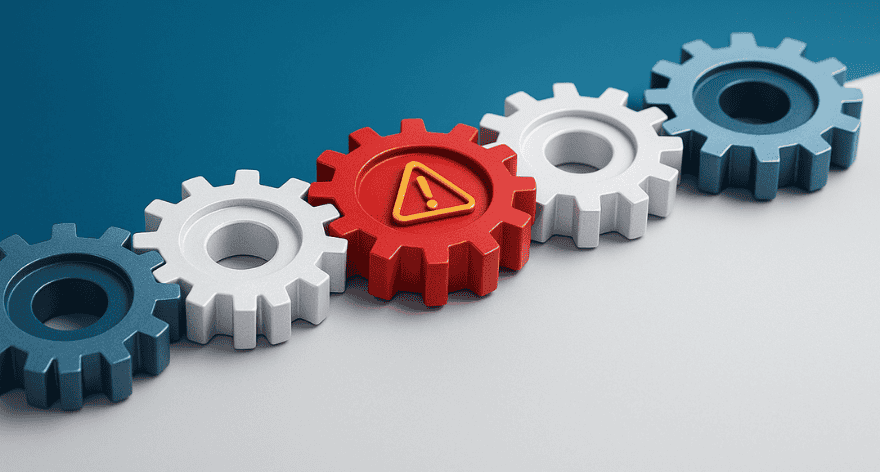Imagine you hire a company for a job. That company then hires another, and so a chain of businesses is formed. If one company in that chain fails to pay wage taxes for its employees, you as the client can be held liable for the unpaid amount. This is what’s known as chain liability (or in Dutch, ketenaansprakelijkheid). But how can you prevent this from happening?

What does chain liability mean?
The Dutch Chain Liability Act (Wet Ketenaansprakelijkheid, WKA) is intended to ensure that all links in a chain of clients and contractors meet their obligations, particularly regarding payroll taxes. If one party in the chain fails to comply with the rules, other parties in the chain, such as you as the client, can be held liable.
In practice: you may have to (co-)pay for debts you did not cause yourself. This risk is especially real in sectors that rely heavily on temporary workers or subcontractors, such as construction, cleaning, and logistics.
Not only is this a financial risk, but you also run the risk of reputational damage if someone in the chain fails to meet their obligations, as seen at Saints & Stars. Saints & Stars hired a cleaning company, which in turn exploited its employees. This harmed the reputation of the luxury gym chain.
Your responsibilities as a contractor
As above, being a contracting party goes beyond simply ‘outsourcing the job.’ Especially when external parties are involved who, in turn, hire other parties. The law expects you to act with due care. If you don’t, you can be held liable, even if you acted in good faith.
Fortunately, there are ways to reduce the risk. Think of:
- Working with a blocked account (g-rekening). This is an account where you deposit part of the invoice amount intended for payroll taxes.
- Clear contractual agreements
- Performing and documenting due diligence
But how can you be sure that a supplier or subcontractor is financially healthy? Or even capable of meeting their obligations?
Interesting read: Check the financial health of suppliers and other parties with Finance Analytics
Data as the foundation of responsible entrepreneurship
Taking responsibility starts with insight. Financial and compliance data give you control over risks before they occur. Screening suppliers on creditworthiness, payment behavior, and sanction lists helps you make informed decisions.
Interesting read: Due diligence research becomes easy with indueD
Just as important is monitoring. A party that seems financially stable today can already be in trouble tomorrow. By continuously monitoring factors like bankruptcy risk, changes in ownership, or negative news, you stay alert to signals that could increase your liability.
From legal duty of care to moral responsibility
The WKA primarily concerns legal liability. But beneath that lies a broader question: how does your organization ensure fair and ethical collaboration with others?
In a world where supply chains are becoming increasingly complex, it is no longer enough to only look at your direct suppliers. You need to know who you’re doing business with, and who they work with in turn. Not just to avoid legal risks, but also to demonstrate that you take your social responsibility seriously.
